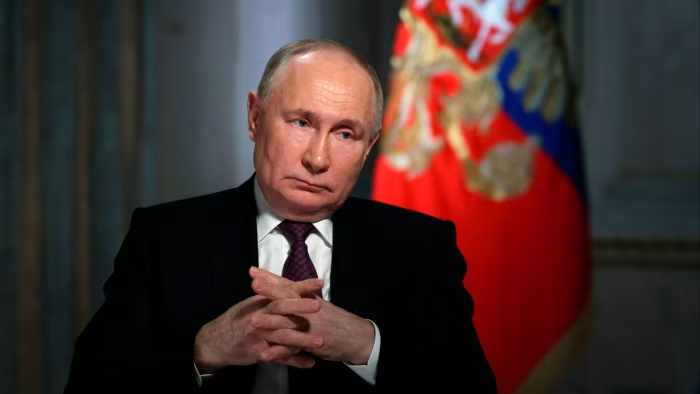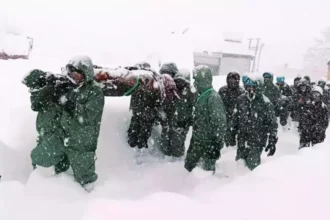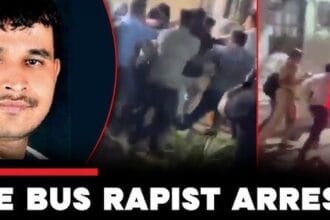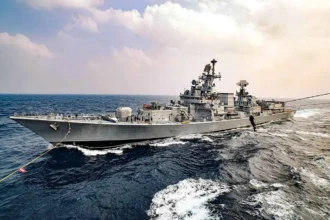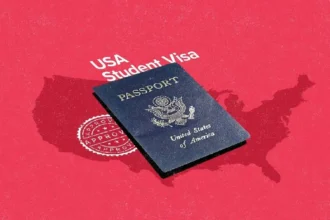World War III
The internet has become our new battleground—not just for culture wars or political debates, but now, potentially, for the first signs of something far more dangerous: global conflict.
Last week, the world watched a chilling exchange unfold not in a war room, not at a summit, but on X (formerly Twitter). The words were sharp, the undertones darker. It wasn’t just about diplomacy anymore. It was about survival.
Fire, Fury, and a Dangerous Game
It all started when former U.S. President Donald Trump made a bold statement aimed at Russian President Vladimir Putin. In a media interaction, Trump warned that Putin was “playing with fire,” referencing Russia’s aggressive military actions, particularly a massive drone and missile assault on Ukrainian cities.
The attack had already rattled the world. Footage of destroyed apartment buildings and families taking shelter in basements had circulated widely. But the real explosion came in the form of a tweet—or a post, rather—from Dmitry Medvedev.
Medvedev, Russia’s former president and now the Deputy Chairman of its Security Council, is no stranger to provocative commentary. But this time, his words echoed louder than ever.
“Trump says Putin is playing with fire. He should know there’s only one REALLY BAD thing: World War III. I hope he understands that.”
This wasn’t just posturing. It was a cold, calculated shot across the digital bow, and it sparked a storm of fear across the world.

A Tipping Point in a Digital Age
Let’s pause for a moment.
Medvedev’s statement wasn’t made in a secret cable. It wasn’t tucked into a backroom discussion or shared behind closed doors with military brass. It was blasted out to millions in plain view. And in our hyperconnected age, those few characters set off shockwaves.
Global media outlets picked it up within minutes. The term “World War III” started trending. Suddenly, political analysts, think tanks, and average citizens alike were asking the same terrifying question: Is this really happening?
Because here’s the thing: we’re not used to warnings of global annihilation arriving with a notification ping. But that’s exactly where we are now.
Trump’s Camp Fires Back
Not one to stay silent, Trump’s side responded quickly.
Keith Kellogg, a retired general and Trump’s national security adviser, called Medvedev’s words “reckless” and “unfit for a global leader.” He accused the Russian leadership of escalating tensions irresponsibly and stirring global unrest for political gain.
But if you thought that would cool things down, it didn’t. It only added fuel to the fire.
In the days that followed, Russian state media doubled down, echoing Medvedev’s warning and accusing the West of pushing the world toward the brink. Meanwhile, Ukrainian officials urged the world not to give in to fear-mongering, even as their cities faced nightly air raid sirens.
History Echoes Loudly
This isn’t the first time the world has been here. In the early 1960s, the Cuban Missile Crisis nearly brought the U.S. and the Soviet Union to nuclear war. Then too, leaders sent stark warnings. Then too, the world held its breath.
But this moment feels different. It feels more chaotic.
Back then, the channels of communication were slower, more deliberate. Now, a single tweet can cause markets to crash or leaders to snap. Words matter more than ever—and they’re being thrown around like grenades.
Ordinary People, Extraordinary Fear
What does this mean for us?
For people in Kyiv, Moscow, New York, and New Delhi, it means living under the shadow of uncertainty. Parents are wondering what kind of world their children are inheriting. Young people, already burdened by climate change, pandemics, and economic instability, now have to factor in the possibility of nuclear war.
Saira, a 28-year-old journalist from Mumbai, put it simply:
“I check the news every morning now not just to see what’s happening, but to see if we’re still safe. That’s not how life should be.”
And she’s right.
This constant tension, this boiling undercurrent of fear—it’s exhausting. But it’s also our reality now.
What Comes Next? – World War III
There are no easy answers. Political analysts argue that Medvedev’s statement was more about bluster than action. Others warn that dismissing such threats is exactly how we stumble into catastrophe.
What’s clear is that the Russia-Ukraine war has become more than a regional conflict. It’s now a flashpoint for something far larger.
Trump, despite being out of office, has promised to open dialogues with both Putin and Ukrainian President Zelenskyy. Whether he can calm the storm or further inflame it remains to be seen.
Meanwhile, the Biden administration continues to back Ukraine with military aid and diplomatic support, while carefully navigating a path that avoids direct conflict with Russia.
Conclusion: We’re All in This Together – World War III
Maybe this is a wake-up call. Maybe it’s time to realize that global peace isn’t just the job of presidents and prime ministers—it’s ours too.
It’s in the way we vote. The way we talk to each other. The way we stay informed without falling into panic.
Because when a world war is trending on social media, we can no longer afford to look away.
Let’s hope cooler heads prevail.
For more updates and other exciting news, visit our website now!
Join GetRapidnews







